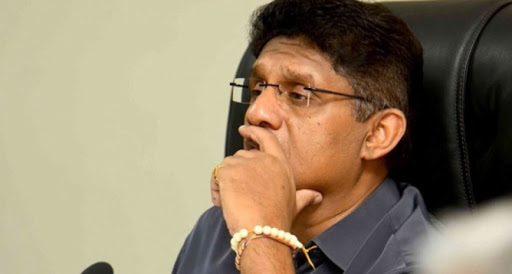By Adolf
The recent political developments surrounding the opposition landscape reveal a strategic misstep by the Samagi Jana Balawegaya (SJB)—one that could weaken its positioning at a pivotal moment. The Nugegoda rally, organised jointly by three parties, exposed a fundamental problem: the SJB failed to assume its natural role as the principal opposition force. Instead of leading, it ceded the space to smaller parties that together command only a modest share of public support. This was, politically, a foolish move. Sajith Premadasa failed to read the public mood . He could pay the price for his indecision. In the last local government elections, the three parties that joined forces at Nugegoda collectively secured just 17.58% of the vote. By contrast, the SJB remains the second-largest political party in Sri Lanka, with the organisational strength and voter base capable of mobilising large crowds and dominating the opposition narrative. In addition the best professional team . Yet, at a moment when the government is facing public dissatisfaction, for repeated lies and deception, economic strain, and governance-related criticism, the SJB chose hesitation over leadership.
This hesitation carries consequences
Firstly, it creates a leadership vacuum within the opposition, allowing smaller groups to project themselves as the real challengers to the government. Politics abhors a vacuum. If the largest opposition party does not set the agenda, others will—regardless of their support base. The Nugegoda event demonstrated this clearly: a coalition of weaker parties seized the moment because the SJB left the space open.
Secondly, the SJB’s delay emboldens rival factions within the opposition ecosystem. The post refers to concerns that the UNP, weakened and unable to organise large rallies on its own, still plays a disruptive role by complicating alliances and offering alternative platforms for dissatisfied voters. The SJB, unlike the UNP, does not suffer from severe organisational decline. Yet its reluctance to mobilise at scale gives the impression of an uncertain or lethargic leadership strategy.
Thirdly, the SJB’s failure to act risks fragmenting the anti-government vote once more. The last decade of Sri Lankan politics repeatedly showed how divided opposition forces—regardless of ideology—pave the way for the incumbent to win comfortably. The post hints at fears that the opposition vote may splinter into clusters, enabling the “Pohottuwa” to re-emerge stronger in the next cycle. A divided opposition, even if individually loud, is collectively ineffective.
Fourth, the SJB’s passive stance undermines its credibility among its own supporters. Opposition parties thrive on momentum, visibility, and the perception of inevitability. When a party appears disengaged, supporters drift. Some migrate to louder alternatives. Others disengage entirely. The SJB’s core strength—its nationwide organisational network—risks erosion if it does not provide direction, energy, and action.
Finally, the broader electorate expects the leading opposition party to articulate grievances and solutions boldly, especially during periods of public frustration. When the SJB avoids taking the centre stage, citizens turn to whoever is willing to speak forcefully about national issues—even if those voices come from smaller political entities.
In essence, the SJB made a foolish move not because it lacked resources, popularity, or legitimacy, but because it failed to play the role the moment demanded. Politics rewards those who seize opportunities, not those who hesitate. Unless corrected quickly, this misstep could permanently shift the balance within the opposition—and determine the outcome of the next national election. Sajith Premadasa should not lose the opportunity to lead the opposition. Whoever advised Sajith Premadasa to refrain from participating in the rally from his party SJB, definitely needs his head examined.
